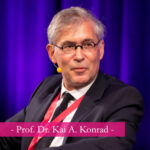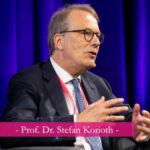The summer reading recommendations from our CONVOCO! thinkers – be inspired!

Revolutionary Spring. Europe Aflame and the Fight for a New World, 1848-1849 (2023) by Christopher Clark
More Flags (1942) by Evelyn Waugh

God, Human, Animal, Machine: Technology, Metaphor, and the Search for Meaning (2022) by Meghan O’Gieblyn
Tomorrow, and Tomorrow, and Tomorrow (2022) by Gabrielle Zevin
Hayao Miyazaki (2022) by Jessica Niebel

Ronald Reagan and Margaret Thatcher: A Political Marriage (2007) by Nicholas Wapshott

The Wings of the Dove (1902) by Henry James
Art as Experience (1934) by John Dewey
Mysteries of the Rectangle. Essays on Painting (2005) by Siri Hustvedt

Americanah (2013) by Chimamanda Ngozi Adichie
The World of Yesterday (1942) by Stefan Zweig
Down to Earth: Politics in the New Climatic Regime (2018) by Bruno Latour
Bruno Latour’s book is a foundational work on the social science debate about the Anthropocene, the geological era in which humans can no longer define themselves separately from nature, but in which human action must include the fact that humanity is part of nature and that nature in turn impacts humanity – as illustrated by climate change. Latour combines this diagnosis with a brilliant and, in places, highly pointed overview. His diagnoses are daring and certainly not always entirely sound – but the overall picture he draws is very revealing with regard to the question of how the key political and social problems of the present are interconnected. Above all, the volume is essential for understanding the Anthropocene.

Lessons (2022) by Ian McEwan

The Most Secret Memory of Men (2022) by Mohamed Mbougar Sarr

Why Empires Fall. Rome, America and the Future of the West (2023) by John Rapley, Peter Heather
Power and Progress. Our Thousand-Year Struggle Over Technology and Prosperity (2023) by Daron Acemoğlu and Simon Johnson
If you have not read the latest C! Edition “Equality in an Unequal World” yet, then there can be only one summer read for you.

